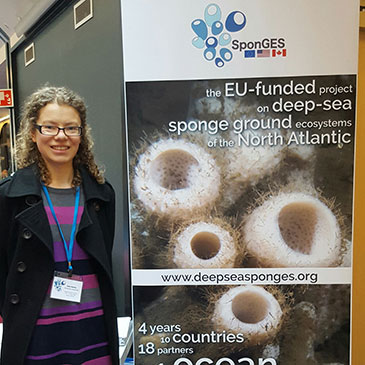The goal of SponGES is to develop an integrated ecosystem-based approach to preserve and sustainably use deep-sea sponge ecosystems of the North Atlantic. These are among the most diverse, ecologically and biologically important and vulnerable deep-sea ecosystems, but have received very little research and conservation attention to date.
Dr Hendry is working on the project as an isotope geochemist, and will analyse the sponge skeletons for their chemical makeup. The measurements will be made in the Bristol Isotope Group's labs using cutting-edge plasma mass spectrometry.
‘The silicon isotope composition gives us information about the conditions under which the sponges grow their skeletons – a process called biomineralisation’, says Dr Hendry. ‘This means that we can use isotope geochemistry to investigate the growth of living sponges in the modern ocean, and also use the chemistry of fossil sponge skeletal fragments found in marine sediments to tell us about how environmental conditions have changed through time.’
